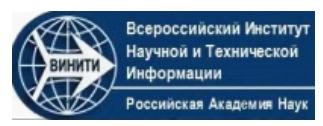Modification of a deep learning algorithm for distributing functions and tasks between a robotic complex and a person in conditions of uncertainty and variability of the environment
M.A. Shereuzhev, Wu Guo, V.V. Serebrenny
Upload the full text
Abstract. In the real world, conditions are rarely stable, which requires robotic systems to be able to adapt to uncertainty. Human-robot collaboration increases productivity, but this requires effective task allocation methods that consider the characteristics of both parties.The aim of the work is to determine optimal strategies for distributing tasks between people and collaborative robots and adaptive control of a collaborative robot under uncertainty and a changing environment.Research methods. The paper develops a graph-based approach to task allocation based on the capabilities of a human and a robot. The LSTM memory mechanism is built into the reinforcement learning algorithm to solve the problem of partial observability caused by inaccurate sensor measurements and environmental noise. The Hindsight Experience Replay method is used to overcome the problem of sparse rewards.Results.The trained model demonstrated stable convergence, achieving a high level of success rate of manipulation of objects.The integration of LSTM and HER methods into reinforcement learning allows solving the problems of distributing tasks between a human and a robot under uncertainty and a changing environment. The proposed method can be applied in various scenarios for collaborative robots in complex and changing conditions.
Keywords: human robot interaction, adaptive control algorithm, task distribution, reinforcement learning
For citation. Shereuzhev M.A., Guo Wu, SerebrennyV.V. Modification of a deep learning algorithm for distributing functions and tasks between a robotic complex and a person in conditions of uncertainty and variability of the environment. News of the Kabardino-Balkarian Scientific Center of RAS. 2024. Vol. 26. No. 6. Pp. 208–218. DOI: 10.35330/1991-6639-2024-26-6-208-218










